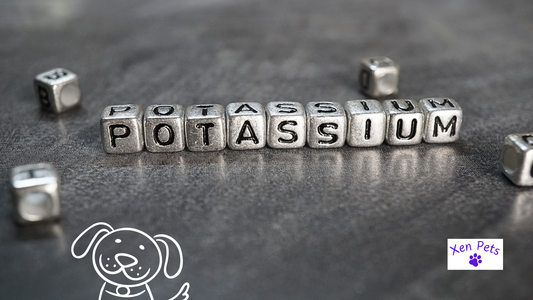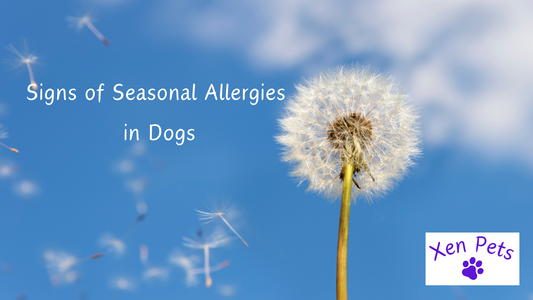Do You Have a Hypervigilant Dog?
Tory JohnsonShare
As a dog owner, it's very sad to know some dogs have a terrible past. They may come from traumatizing homes, have been in terrible fights, or just suffer from separation anxiety. All this can lead to a hypervigilant dog. Hypervigilance is an elevated state of awareness. This can affect your dog differently than other dogs. Read on to learn more.

Signs of Hypervigilance in Dogs
Hypervigilance is comparable to PTSD in humans.
People and dogs who have been in fights, been abused, or have posttraumatic stress disorder (PTSD) can all describe a vigilant dog. Take note in your dog's body language, significant changes are a huge sign you have a vigilant and/or anxious dog.
6 Signs You Have a Hypervigilant Dog
- Extremely weary of potential threats (both animals and people)
- Startles easily (likely to jump at any sound)
- Higher heart rate
- Dilated pupils
- High blood pressure
- Behavioral issues (may not want to take part in activities)

Causes of Hypervigilance
PTSD is a common cause of hypervigilance. Many different factors cause hypervigilance and affect many dogs differently. Let's take a look at the different factors.
Separation Anxiety
Separation anxiety can make our loved dogs anxious and worried about where their owner has gone.
They may begin to search and become hypervigilant in finding you, worrying something has gone wrong.
Experiencing Serious Injury
Dogs who have experienced serious injury in the past can suffer from PTSD. They do not want to be hurt again.
If you know your dog has been seriously injured in the past, or before they joined your home, be especially careful in caring for them.
They will be very delicate and require a tremendous amount of love.
Extreme Fear
Fear can most definitely cause vigilance and increase your dog's anxiety.
If you notice your dog is fearful of certain situations, take note of these anxious behaviors and try to reduce them in your dog's life.
Experiencing Trauma
Trauma is the most common sign of hypervigilance. Trauma can come from many things.
Psychological and emotional trauma can result from stressful events and cause disability in your dog's functioning.
Stressful events can be things like physical attacks, emotional abuse, medical emergencies, or natural disasters. All these can result in canine anxiety and hypervigilance.
Generalized Anxiety Disorder
Generalized anxiety disorder (GAD) is a constant feeling of anxiety and can interfere in your dog's life causing behavior problems.
If you have an anxious dog, you may want to see a board certified veterinary behaviorist. Your vet will be able to diagnose anxious dogs

Managing Hypervigilance and Dog Anxiety
Here are some ways to manage your anxious dog and their feelings of hypervigilance.
How can I calm and help my hyper vigilant dog?
- Give your dog a break — try to help them relax, maybe try an occasional treat they love!
- Exercise your dog — go for a walk or play toss. Getting some energy out can do wonders for an anxious dog.

Bottom Line
We hope you've found this helpful. It's worth the trouble working with a hypervigilant and anxious dog.
If you aren't getting the results you need, try additional behavior modification techniques, work with a certified dog trainer, or see one of the qualified veterinary behaviorists.
Follow us for more!

Frequently Asked Questions
What is a hypervigilant dog?
A hypervigilant dog can be described as an alert dog that has an elevated state of awareness.
Why is my dog super alert?
A dog is generally super alert because they suffer from hypervigilance, a condition comparable to PTSD.











